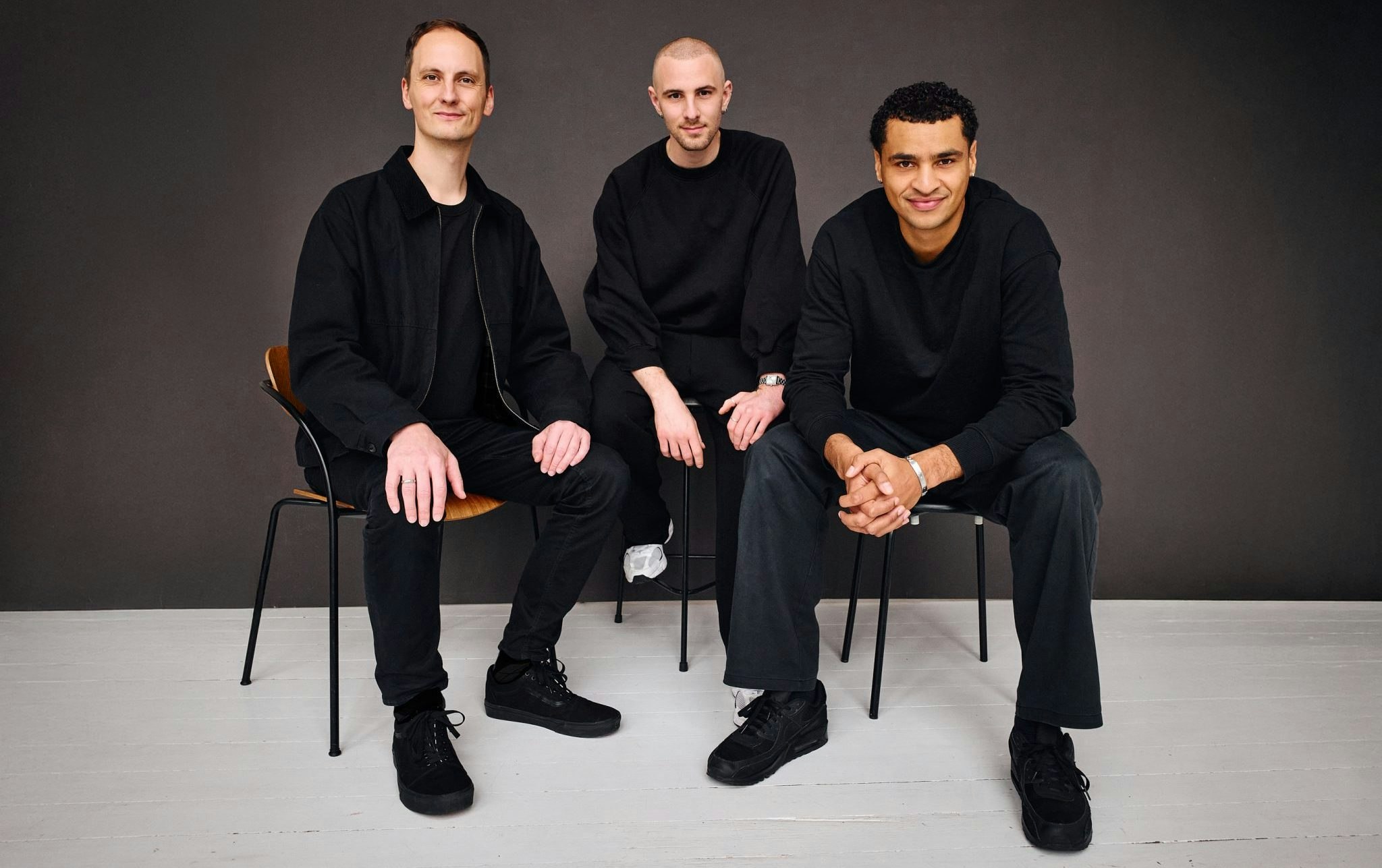The last time Depop founder Simon Beckerman stepped down as CEO of a company he set up, it resulted in a “breakdown”.
One morning, about a year after relinquishing the reins of the now-hugely popular secondhand clothes marketplace and shifting to a seat on the board, Beckerman woke up with stomach pain so bad he thought he was “going to die”.
It turned out to be gastritis — a condition caused by inflammation of the stomach lining — and was the result of months of growing “panic,” which Beckerman believes was caused by the stresses of startup life and losing control of Depop. That day, he told his investors and senior leadership that he wasn’t going to be able to work anymore and took a year off from his board role at the company.
A decade on from that episode and Beckerman is doing it all over again.
After Etsy’s $1.6bn acquisition of Depop in 2021, he launched Delli — a marketplace for independent food producers. Now Beckerman’s stepping aside from the CEO hot seat for Delli’s incumbent COO and cofounder — and former Depop exec — Marie Petrovicka.
But, Beckerman says, sitting in between Petrovicka and myself along the bar at a noodle restaurant in Soho for our Brunch with Sifted interview, this time it’s going to be different.
‘Food is the new fashion’
It’s a suitably on-brand choice of restaurant for a couple of startup folk who’ve collectively spent two decades working at particularly image-conscious consumer brands. Depop brought a cool to the secondhand fashion space that incumbent marketplace eBay lacked, and there’s a distinctly oh-so-on-trend film camera aesthetic to Delli’s website and app.
Koya Soho is similarly stylish. The 20 or so seats in the restaurant are all around the bar overlooking a bustling kitchen. There’s a big jar of kombucha fermenting away in front of us and the ceiling pipes are exposed. Koya is also the maker of one of Beckerman and Petrovicka’s favourite Delli products, a cashew and peppercorn chilli oil.
It’s just minutes before food starts arriving at our little corner of the bar — Koya’s “Japanese Breakfast”, of grilled fish, sticky rice, pickles and a small bowl of miso soup. Beckerman says he began ordering before Petrovicka and I arrived. We decide to share the spread and order two more bowls of miso soup, a bowl of seaweed udon noodles and a jar of that famous chilli oil.
More food arrives and the conversation begins on Delli. Beckerman, who grew up in Italy with an Italian mum and an English dad, says he had the idea for the food marketplace a year or so before selling Depop — which reportedly netted him an eye-watering $68m.
Towards the end of the 2010s, he noticed that clothes sales at his father-in-law’s department store in Italy were beginning to decline, and consumers in London were starting to “get into a new kind of healthy foods”.
“I told [my father-in-law] food is the new fashion — you need to start selling food,” Beckerman tells me in his lilting Italian accent. He speaks with the quiet, assured confidence of someone who’s earned enough money to never have to work again.
Beckerman says he began to notice more independent food retailers popping up on high streets in East London — where he moved to from Italy 12 years ago to raise funding for the then little-known Depop. It was a trend he also saw happening on Instagram, with the number of sellers shooting up during Covid, but without a single platform where consumers could find them all.
“At that point, I was like ‘Simon, this is another one’,” he says, with an air of excitement typical of a founder in the throes of a new project. “This is a market that is waiting to be discovered.”
Beckerman doesn’t say whether his father-in-law took the advice, but he followed his instincts and launched Delli in 2021, as a marketplace for independent makers of foods like oils, hot sauces, snacks and drinks.
For smaller sellers, Delli houses products in its warehouse but doesn’t purchase them itself, waiting for customers to buy the product at which point it takes a cut. Delli buys products wholesale from larger producers.
Three years on, the startup has raised $10.4m from VCs Balderton and HV Capital (both early backers of Depop), most recently in a $7.2m round in September 2022.
Delli’s seen sales increase tenfold in 2024, with customers doubling their basket size and returning twice as often as before, say Petrovicka and Beckerman, although they’re keeping schtum about precise figures.
But those numbers add up to “product-market-fit”, says Petrovicka — who speaks in a more measured, precise manner than her cofounder — maybe exactly the type of approach a startup needs when looking to hit the growth stage. Now the company is on the hunt for what she calls “scale fit”.
A change of leadership
It’s that next step of the startup journey that the Czech-born Petrovicka will be leading Delli into as the company’s new CEO.
Her professional relationship with Beckerman goes back to 2017 when the Depop founder hired Petrovicka as chief of staff of the fashion marketplace from a background in management consultancy. She quickly moved into a role as general manager of the US — where she led the company’s relaunch and grew it tenfold to make the country Depop’s primary market — before leading the company’s global expansion.
Seeing Petrovicka and Beckerman bounce off each other in conversation, there's an easy, familiar manner between the two and an obvious affection and respect.
Beckerman describes Petrovicka as “one of the smartest people” he’s ever met and his “favourite at Depop”. She laughs and tells him, “You’re going to get calls from some people”. Petrovicka, in turn, describes Beckerman as a mentor and “true visionary”.
She first sat down with him to discuss her potential involvement in Delli as an advisor over lunch in 2020 — before the Depop exit materialised and talks were put on hold. Petrovicka stayed on at Depop after the exit but found that her role became less “hands-on” after the startup was rolled into Etsy’s operations.
“I had the itch for getting my hands dirty again,” she says. Beckerman called Petrovicka around the same time she left Depop, and after a “long walk in a park,” she agreed to join the company as cofounder and COO in 2022.
But Petrovicka’s transition to CEO was always part of the plan.
“I’m not an operational person,” says Beckerman. “I love the creativity behind inventing things, discovering things and building project projects from scratch. The intention was always to step down as CEO once the company reached-product-market-fit.”
Beckerman will still be working for the company in a new role as “chief creative officer” — a loosely defined position that he says involves leading on brand work, including content and collaboration projects, and heading up product design, such as consumer-facing projects.
Learning from the past
But this next stage of adapting to a role away from the helm of Delli is one that he’s determined will be different to when he left Depop. Beckerman remembers the pressures of startup life — combined with the added strain of relinquishing control of a company he’d built from the ground up — that led him to panicking about “anything from micro-decisions to big strategic decisions” and eventually a breakdown.
While coaching and therapy helped get Beckerman back on his feet, he’s also spent time reflecting on what went wrong.
At Depop, the incoming CEO after Beckerman, Runa Reistrup, had joined the company in 2013 — two years after it launched — as COO before stepping up to the top job a few months later. Beckerman says he struggled to share the vision with him.
“I wasn’t able to convey the reason I thought [decisions] were wrong, so ultimately I was upset all of the time and we had a lot of arguments,” Beckerman tells me.
He says this approach to the working relationship with Reistrup is his biggest mistake in business and slowed down the success of the company by a few years. “Had I learned how to do that, the outcome would’ve been very different… at least mentally for me” Beckerman adds.
At Delli, he and Petrovicka will be hoping things are pan out differently.
The startup’s incoming CEO has helped shape the vision for the company from the get-go and there’s been an “intentionality” around planning how they’ll both work together, says Petrovicka: “We are having conversations around where I need Simon’s help, how decisions are made, the level of involvement.”
Beckerman’s new-found wealth also takes some of the pressure off — for him at least.
Before Depop, he says he never had “consistency” of income — having previously run a fashion magazine and sunglasses brand with his brother.
“I chose to start Depop because I thought this would give me the best shot at fixing my family’s economic problems,” says Beckerman. “I was like ‘if Depop doesn’t work out I’m going to be living under a bridge’, because I’m unemployable — I cannot work for anyone.”
“So that creates a big panic — because the more you get older, the more you feel that it's difficult to start a new company,” he adds.“I do not have that panic anymore — of ending up under a bridge — because Depop was successful, and I made enough money not to have to worry.”
Next stop: growth
While Beckerman might be feeling more relaxed this time out, he’s under no illusions of the pressures awaiting Delli’s incoming CEO.
“There are always new problems,” he tells me. “Hopefully Marie is good at coping with the pressures — I think she is”, he says, before playfully adding “I see her stressed sometimes and I try to do something about it, but I don’t know if I can.”
“[Being CEO] is a stressful job” — Petrovicka says, to a knowing nod from Beckerman. “I don’t think you can ever completely eliminate stress.”
For her, the big challenge is going to be to turn Delli from a good idea to a business that makes money.
Achieving what Petrovicka calls scale-fit means 10x’ing everything, she says. “More sellers, more buyers, a bigger operation.” Further down the line — no doubt driven by her experience making Depop a success in the US — expanding across the Atlantic is a big goal, she adds. “Maybe in a year is pushing it, but for us the US is a big, big thing. That’s a market we’re very familiar with. The US is just completely next level.”
They’ve also got an eye on fundraising, and plan to go out to the market in “a year or so from now”, says Beckerman.
While he'll be involved in Delli on a day-to-day basis going forward, Beckerman’s also hoping to have more time to work on his next — and potentially most demanding — project, starting a family.
“I’m 50 now, so it’s either now or never,” he says. “I wouldn’t say that stepping down as CEO is because of this, but stepping down will allow me to mentally focus on that more.”
As we approach the two-hour mark of our brunch — the brunch crowd well and truly departed and lunchtime business in full swing at the restaurant — I ask Beckerman if he’s got any other business ideas up his sleeve.
“I have loads of ideas,” he says without hesitation, before adding his wife — who he describes as a “saint” for staying with him through the difficult Depop years — cautions him to stay focused on Delli.
“I’m like ‘I’m going to finance someone, and they can do it’ and she says ‘Simon, you’re going to end up talking to them every day’ — and she’s right — but saying no is difficult.”



